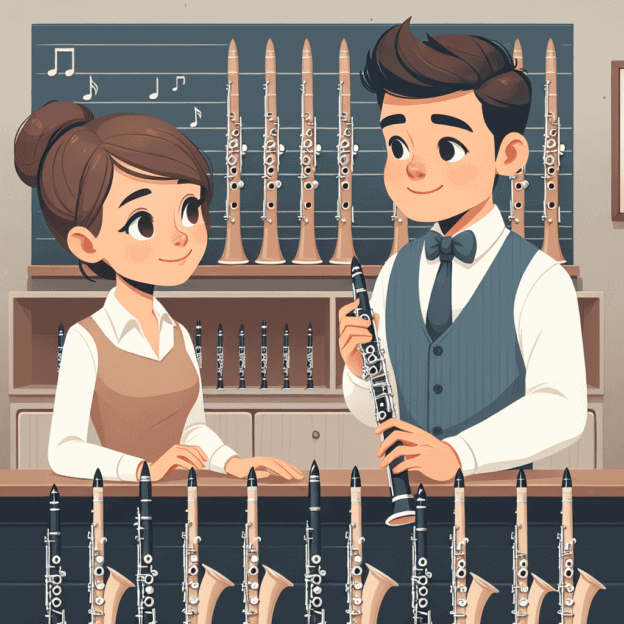Choosing the right clarinet can be both thrilling and a bit overwhelming. As someone who knows a thing or two about clarinets, I get it! Whether you're just starting out, have some experience, or are a seasoned pro, there are several things to think about when picking the perfect clarinet. Let's break it down.
Understanding the Types of Clarinets
Clarinets come in different types, each fitting various playing styles and music genres. The most common ones are:
- B flat clarinet: The go-to for many, versatile for classical, jazz, and more.
- A clarinet: Mostly used in orchestras.
- E flat clarinet: Known for its higher pitch and bright sound.
- Bass clarinet: Offers a deeper, richer tone.
Knowing what kind of music you want to play can help you choose the right type.
Material Matters
Clarinets are usually made from wood or plastic. Here's a quick comparison:
| Material | Pros | Cons |
|---|---|---|
| Wood (Grenadilla) | Warm, rich tone; preferred by pros | Needs more care; sensitive to weather |
| Plastic | Durable; good for beginners; less affected by weather | Sound quality not as rich |
Wooden clarinets sound amazing but need more TLC. Plastic ones are tough and great for newbies or outdoor gigs.
Key Systems and Mechanics
The key system is another biggie. The Boehm system is the most common, especially in the U.S. It's easier to play and has a standardized fingering system. The Oehler system, used mainly in Germany and Austria, has a more complex key mechanism and is loved by some classical musicians for its unique sound.
Also, the quality of the keys matters. Look for clarinets with well-made, comfy keys that make playing smooth and easy.
Budget Considerations
Money matters, right? Clarinets can cost anywhere from a few hundred to several thousand dollars. Here's a quick guide:
Clarinet Price Ranges
- ? Beginner: $200 – $800
- ? Intermediate: $800 – $2,500
- ? Professional: $2,500 – $5,000+
- Beginners: Go for plastic or composite clarinets. They're affordable and sturdy.
- Intermediate players: Wooden clarinets offer better sound and playability.
- Pros: High-quality wooden clarinets with top-notch keywork are worth the investment.
Trying Before Buying
One of the best ways to find your perfect clarinet is to try a few. Visit a music store, attend a workshop, or borrow from friends or teachers. Pay attention to the sound, comfort, and response of each one.
When testing, bring your mouthpiece and reeds for consistency. Play different scales, pieces, and exercises to see how the clarinet performs across various notes and dynamics.
Considering the Brand
While the brand isn't everything, it can give you an idea of the instrument's quality. Brands like Martin Freres have a solid reputation for making great clarinets. But don't be afraid to try different brands and models to find what suits you best.
Maintenance and Care
No matter which clarinet you choose, taking care of it is key. Regular cleaning, oiling the bore of wooden clarinets, and checking for wear and tear are must-dos. A good quality case can protect your clarinet during transport and storage.
Consider getting a pro to check and adjust your clarinet periodically. Proper maintenance not only keeps your clarinet in top shape but also ensures it sounds its best.
Conclusion
Choosing the right clarinet is a mix of personal taste, musical goals, and practical considerations. By understanding the different types, materials, key systems, and budget options, you can make a smart choice that enhances your playing experience. Try out several instruments, consider reputable brands, and keep up with maintenance to find a clarinet that will be your musical buddy for years to come.
Table of Contents
- Understanding the Types of Clarinets
- Material Matters
- Key Systems and Mechanics
- Budget Considerations
- Trying Before Buying
- Considering the Brand
- Maintenance and Care
- Conclusion







